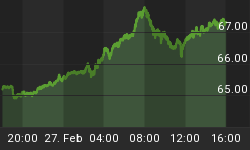In June 2017, the number of ICOs increased to 76 with a funding value totaling to $800 million. Blockchain start-ups need funding to fulfill capital requirements way before the official Initial Coin Offering (ICO), similarly to any regular start-up. Currently, much of the ICOs require scaled marketing budget, token sale smart contract development and a professional team to assist with the crowdsale.
A blockchain start-up, ETHLend, has created a fully decentralized application that allows for creating blockchain loans and thus financing projects and products before the preliminary crowdsale (pre-ICO) takes place. Such blockchain loans could be used by a blockchain start-up to finance the pre-sale period.
The mechanism is simple: a blockchain start-up creates its ERC-20 compatible token by using an Ethereum smart contract. Such tokens will be used for the initial crowdsale. The blockchain startup pledges a certain amount of these tokens as a collateral on the ETHLend DApp for receiving Ether. Once the official ICO is over, the blockchain start-up repays the loan and receives the tokens back (to the development fund).
What are the benefits?
The blockchain start-up receives working capital for the period between start and the pre-sale. Therefore, they don’t need to participate in seed rounds and give away precious equity. Moreover, such working capital finance could be used to reduce the amount of the token that are sold during the token sale. Therefore, there would be more tokens left for the start-up to attract future talents.
Blockchain loan the new “cryptobond”?
Bonds are a common way for start-ups and companies to raise capital. The main difference with bonds and blockchain loans is that the lender cannot transfer the loan to a third party. The lack of transferability distances blockchain loans from regulated bonds.
Indeed, blockchain loans are not regulated, thus the lender and the start-up should take extra precautions when releasing and funding these loans. The main risk for a lender that is participating in such “cryptobond” would be that the ICO would not fulfil the funding cap and as such might not able to repay.
Whether a blockchain start-up is considering to release such a loan, much attention is needed on the loan amount and the collateral ratio. A blockchain loan might provide working capital during the period between white paper/prototype launch and the pre-sale or initial ICO. On the other hand, if such loan is used as an alternative to ICOs, it would not be a good idea due to the fact that the blockchain startup must figure the repayment of the loans, which in most cases would be with the funds raised during the ICO.
What is decentralized lending?
Anyone can borrow and lend anywhere in the world at low cost and near real time using the blockchain. Decentralized lending brings many undiscovered advantages that are non-existent in the current lending system:
A global scaled lending market, where interest rates are determined by the users, independently of the location. This solves the problem for interest rate differences that affecting countries all over the world. Specifically, third world countries such as Africa are suffering most, where interest rates on micro loans can be up to 40%. Costs for lending on the blockchain are extremely low, making micro loans much more affordable and efficient.
Cost and time inefficiencies emerge through automation and the creation of trust by using smart contracts on a decentralized network such as Ethereum. The need for an expensive and time consuming clearing house is replaced and more efficient tools and trustworthy finance is possible, when applying the right tools.
Although pseudonym-addresses seem to be a challenge for lending on Ethereum, on-chain solutions such as using AI for analysing transactions on the blockchain, implementing on-chain KYC or applying prediction markets seems to be the key for a fully decentralized lending system.
Working capital for pre-ICO crowdsale
Are blockchain loans the new way of crowdfunding tokenized start-ups before the ICO? We do not know. However, what we do know is that such loans could help blockchain start-ups that are struggling for finance before an ICO to receive funding from early participants that do believe in the venture.
ETHLend will perform the test and provide proof-of-concept by placing loans on their own platform for funding their capital requirements and setting a new industry standard for pre-ICO crowdfunding. They simply pledge their native LEND tokens as collateral for various loan sizes, where all budgets from small to large can freely participate. Maturity will come after ICO, where all lenders will get back their Ether plus the commitment premium.
The success factor for blockchain start-ups getting loan requests funded will depend on many factors such as the existence of a product (e.g. DApp), the communication of the strategy (e.g. white paper, timeline), the concept itself and the transparency in general. Minimizing risks in funding the projects that result in a loss can be relieved by considering all the above mentioned factors.
By Sergej Stein via Crypto Insider















